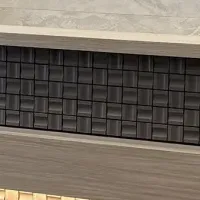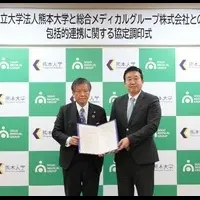
Scinai to Acquire Pincell and Advance Development of Groundbreaking Monoclonal Antibody
Scinai Takes a Major Step in Treating Rare Skin Conditions: Acquiring Pincell
Scinai Immunotherapeutics Ltd., known for its advancements in inflammation and immunology, is in the process of acquiring Pincell, an Italian biotech company with a promising new monoclonal antibody named PC111. This acquisition marks a pivotal development for both companies as they work to address severe dermatological diseases with significant unmet medical needs.
The Journey of Acquisition
On March 27, 2025, Scinai entered a binding option agreement to acquire Pincell, which specializes in the development of therapeutic innovations aimed at rare and challenging skin diseases like pemphigus, Stevens-Johnson Syndrome (SJS), and Toxic Epidermal Necrolysis (TEN). This agreement serves as an exciting milestone in Scinai's focus on expanding its portfolio of treatment options for inflammatory skin diseases.
In tandem with the acquisition, Scinai has filed for a €12 million grant under the European Funds for a Modern Economy (FENG) program to progress the development stages of PC111. This funding aims to cover non-dilutive capital to support the continued research and trials necessary for bringing the antibody to the market. The grant application, submitted through Scinai's Polish subsidiary, is expected to receive a decision by mid-summer 2025.
Understanding PC111
PC111 is a fully human monoclonal antibody that targets the human soluble Fas ligand. By inhibiting this protein's interaction with skin cells, PC111 has shown a capacity to prevent cell apoptosis, a pivotal mechanism in various blistering skin disorders. Importantly, unlike many existing therapies for inflammatory conditions, PC111 does not suppress the immune system, thus promising a safer therapeutic profile with reduced risks for patients.
Pincell has utilized its proprietary humanized mouse model to demonstrate PC111's effectiveness. Through rigorous testing across diverse conditions, it has been shown that PC111 can block the formation of blisters without the use of steroids, thereby presenting a potential breakthrough in the treatment of pemphigus.
The Unmet Need in Dermatology
Pemphigus, SJS, and TEN are some of the most severe skin disorders that deeply affect quality of life and hold substantial mortality risks. These diseases often necessitate prolonged use of immunosuppressive therapies which can lead to severe side effects. With SJS and TEN being particularly acute, the search for effective, non-immunosuppressive treatments has become increasingly urgent.
The acquisition of Pincell and the advancement of PC111 presents a unique opportunity to create a targeted therapy that addresses the core pathogenic mechanisms of these diseases, therefore fulfilling a significant gap in current therapeutic options. As Amir Reichman, CEO of Scinai, articulates, the collaboration could revolutionize the treatment landscape for these patients, offering hope where few options currently exist.
Leadership and Expertise
Notably, the partnership brings together expertise from respected figures in dermatology. Prof. Carlo Pincelli and Dr. Antonino (Tony) Amato, leaders of Pincell, will be pivotal in guiding the development of PC111. Their knowledge and experience complement Scinai's scientific focus and operational capabilities, setting the stage for efficient advancement of this important therapeutic.
Next Steps and Challenges
As Scinai and Pincell gear up for the next stages of PC111’s journey, including applications for Orphan Drug and Breakthrough Designations from the FDA, the path is promising yet laden with standard pharmaceutical challenges. The clinical development of PC111 marks not just a significant corporate milestone for Scinai, but also a potential lifeline for patients affected by debilitating skin diseases.
In conclusion, the collaboration between Scinai and Pincell encapsulates a concerted effort to innovate within a challenging field of medical research. With the right funding, expertise, and a bit of luck, PC111 could soon become a game-changer in treating rare, severe dermatological conditions, heralding a new era in patient care.
Topics Health)










【About Using Articles】
You can freely use the title and article content by linking to the page where the article is posted.
※ Images cannot be used.
【About Links】
Links are free to use.